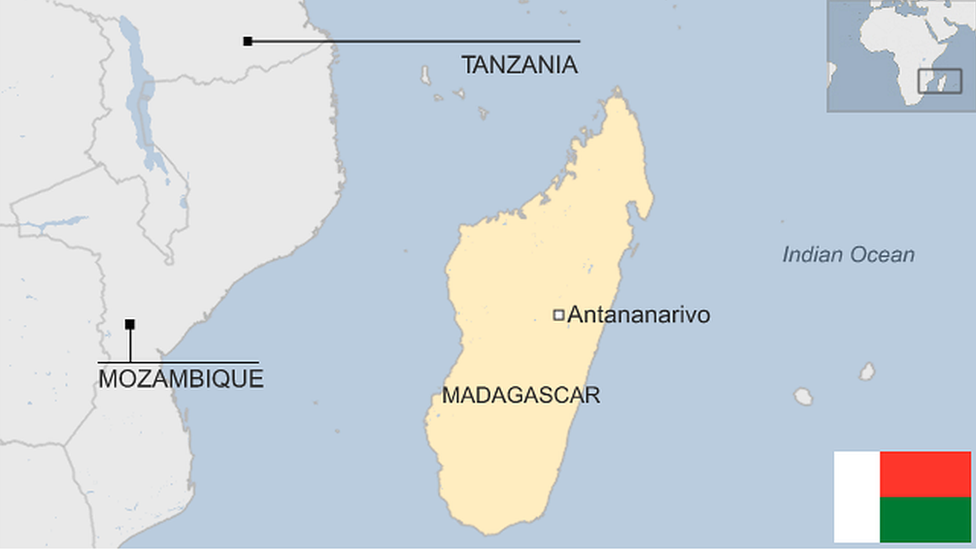Comoros country profile
- Published
This page is no longer being updated. It was last updated on 19 January 2024
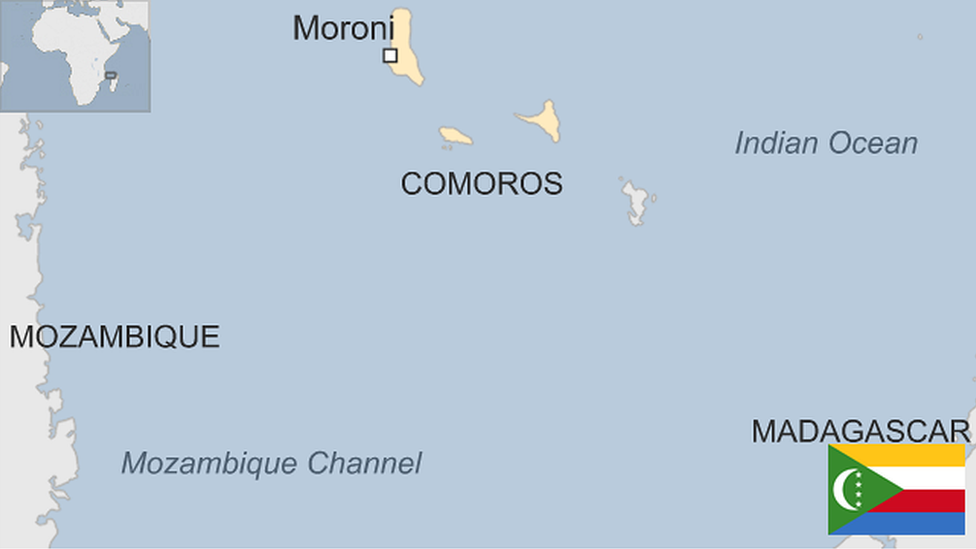
After more than 20 coups or attempted coups since independence from France in the 1970s, the archipelago of islands that make up Comoros are trying to consolidate political stability and use their tourism potential to climb out of poverty.
There are four major islands in the archipelago, however Mayotte voted against independence in 1974 and is still governed by France.
The descendants of Arab traders, Malay immigrants and African peoples contribute to the islands' complex ethnic mix.
Natural resources are in short supply and the chief exports - vanilla, cloves and perfume essence - are prone to price fluctuations. Remittances by Comorans living abroad are an important source of income.
Read more country profiles, external - Profiles by BBC Monitoring, external
UNION OF THE COMOROS: FACTS
Capital: Moroni
Area: 1,861 sq km
Population: 850,800
Languages: Comorian, French, Arabic
Life expectancy: 62 years (men) 67 years (women)
LEADER
President: Azali Assoumani
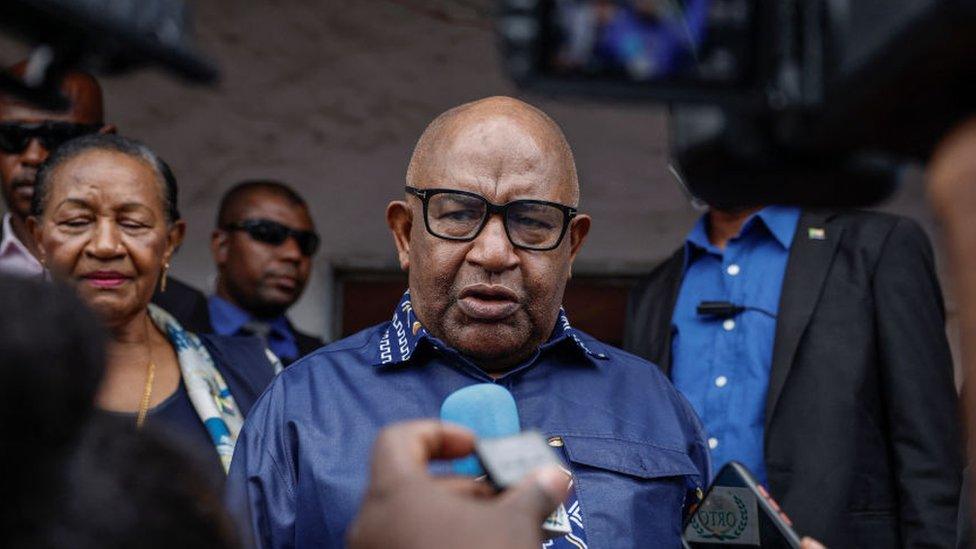
Comoros President Azali Assoumani was re-elected for a fourth term in January 2024 in a poll disputed by the opposition as "fraudulent".
He secured the win with 63% of the vote. However, turnout was low amid an opposition boycott, with just 16% of people voting in the presidential election.
After the results were announced, police and military clashed with protesters angered by his re-election.
Opposition candidates alleged instances of ballot stuffing in favour of Mr Assoumani and that polls had closed early. Mr Assoumani's campaign team denied the opposition's claims.
Mr Assoumani first came to power in 1999 by ousting Tadjiddine Ben Said Massonde in a coup. His troops justified the coup on the basis of protecting territorial integrity after Massounde had begun negotiations with representatives of the island of Anjouan for greater autonomy or independence.
MEDIA
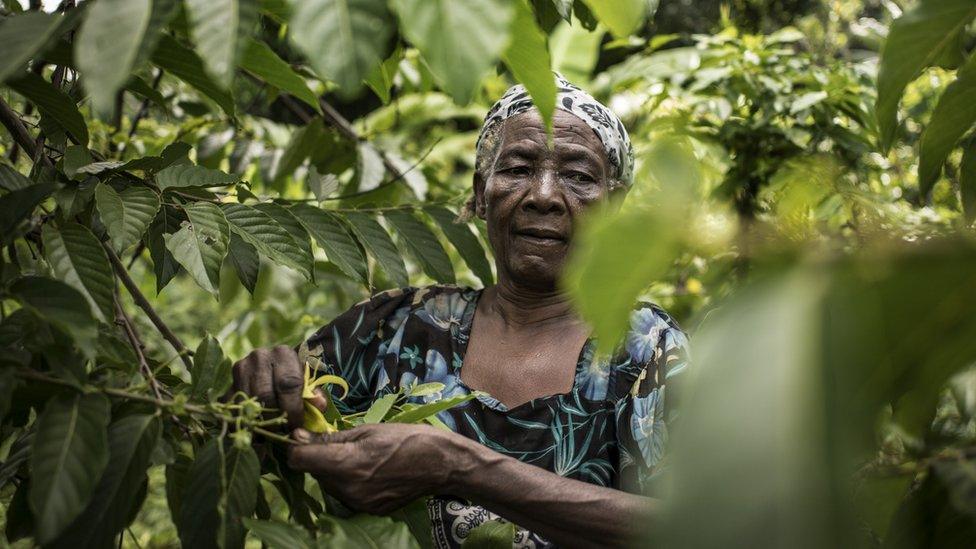
Rare Ylang-Ylang flowers are grown on the sides of the Karthala volcano for their oil which is used as a base for perfume
The Comoros authorities have a tight hold on the media in the country. Journalists risk arrest and detention, and newspapers have been suspended and radio stations put off the air over reports deemed offensive to the government.
Radio is the dominant medium. The national state-run network competes with regional services and private stations. There are also private newspaper papers. Most publish weekly; a feeble advertising market, poverty and poor distribution inhibit circulation.
TIMELINE

Captain Ayouba Combo, left, and French mercenary Bob Denard mounted a coup in 1995 but were thwarted by French forces
Some key dates in the history of the Comoros:
8th Century - Islands are first settled
8th-11th Centuries - Islam spreads among the islands as The Comoros become increasingly important in East African trade routes, and are frequently visited by Persian and Arab merchants.
1503 - Portuguese explorers arrive, and the Comoros then become a provisioning point for ships travelling to the Portuguese fort at Mozambique.
1841 - French first establish colonial rule in the Comoros by taking possession of Mayotte.
1908 - Islands are unified under a single administration and placed under the authority of the French colonial Governor-General of Madagascar.
1912 - Islands became a province of the colony of Madagascar.
1974 - Three of the four main islands making up the Comoros vote for independence, but Mayotte votes to stay with France.
1975 - Comoros declares its independence with Ahmed Abdallah as president. He is quickly deposed in the first of several coups.
1978 - President Ahmed Abdallah is reinstated in a French-backed coup led by French mercenary Bob Denard.
Abdallah's regime is marked by authoritarian rule and an increased adherence to traditional Islam; the country is renamed the Federal Islamic Republic of the Comoros.
Denard sets up a mercenary force based in the Comoros which France and apartheid South Africa can use to intervene militarily on the continent.
1989 - Abdallah is assassinated and Denard is evacuated by French forces.
1995 - Denard attempts another coup without support from Paris, this time he is forced to surrender by French forces.
1997 - The islands of Anjouan and Moheli declare independence. The conflict lasts until 2001, when voters agree a new constitution.
2002 - Country becomes the Union of the Comoros, becoming a more decentralised state with much power transferred to its three main islands.
2007-2008 - Anjouan separatist rebellion is defeated with African Union troops.
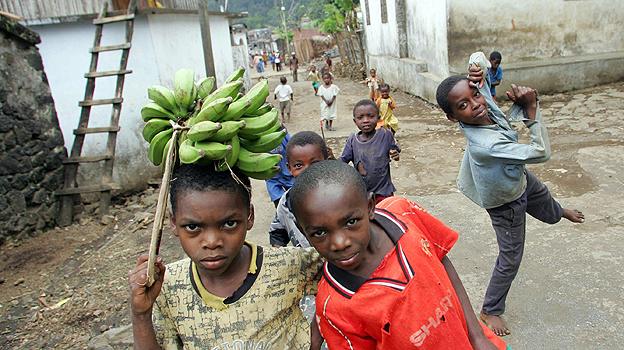
The Comoros islands have experienced some 20 coups since gaining their independence from France
- Published25 October 2024
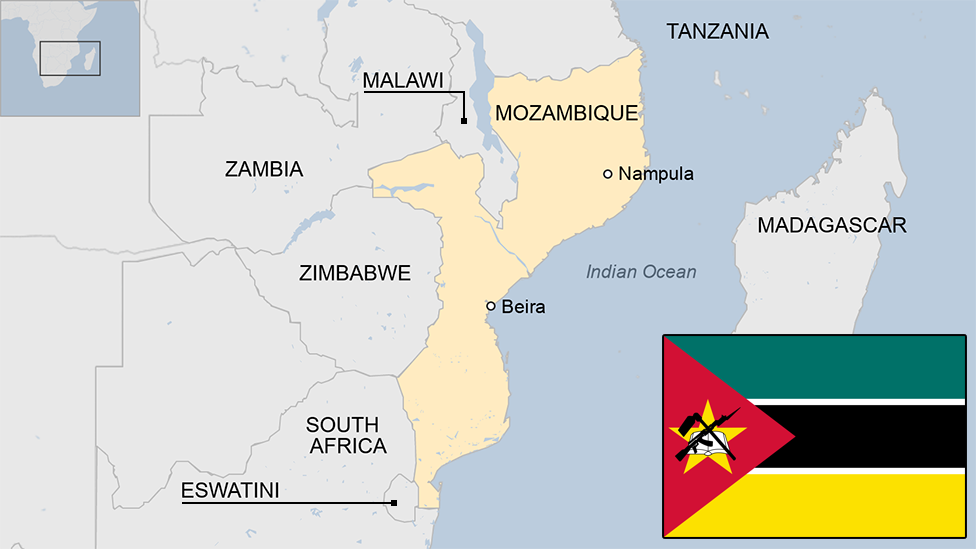
- Published21 July 2023
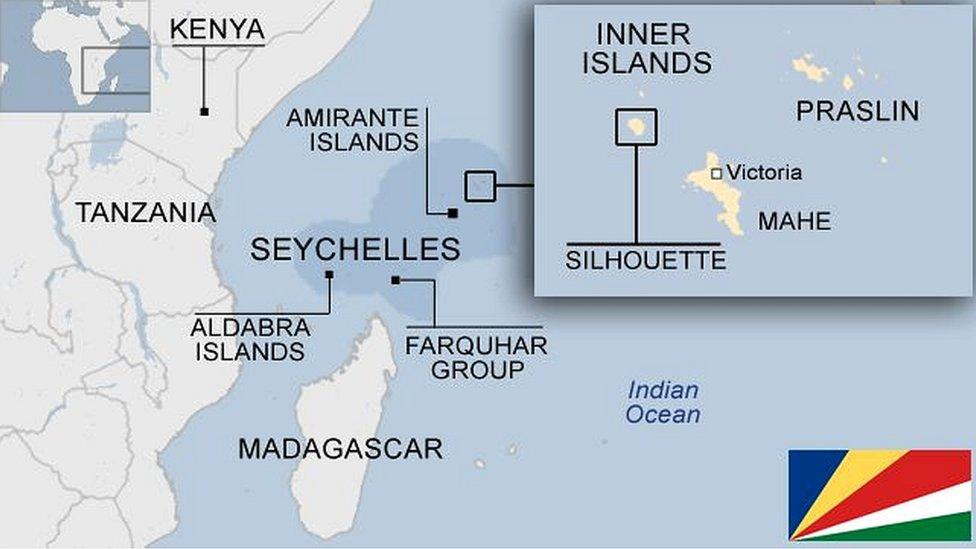
- Published9 October 2024
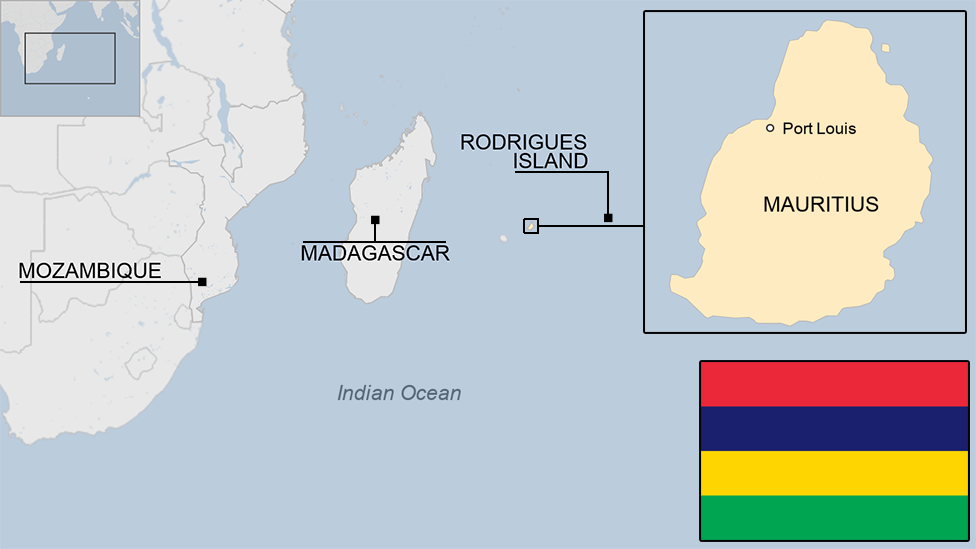
- Published19 July 2023
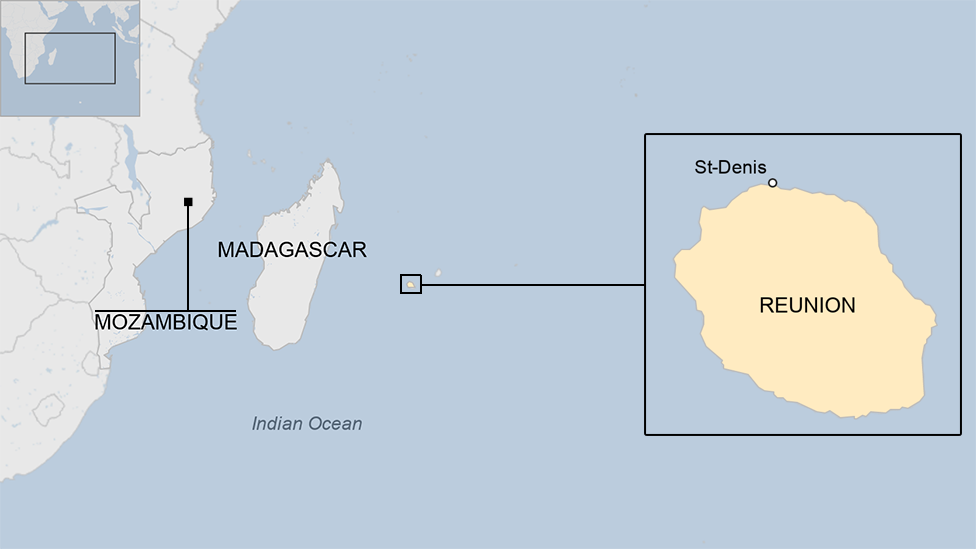
- Published1 December 2023
